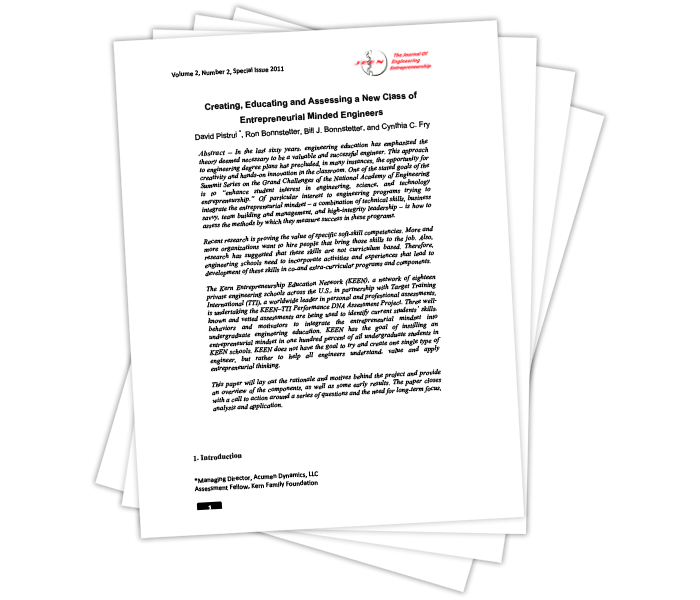
Apr 3, 2019
A method was sought to determine the intangible characteristics of applicants to a general surgery residency program, particularly an assessment of behavior and motivation. The hypothesis was that such information could contribute to a more objective analysis of how well an applicant might fit into a program and its culture, and therefore improve the residents’ chance for success and reduce the attrition rate.

Apr 3, 2019
The consultant was able to discern personal traits and characteristics that did or did not appear to be a good fit for the structure and culture of a surgical training program. These new key personal attributes had not been previously recognized through the traditional resume and interviewing process.

Apr 3, 2019
There is a great need to develop a new class of entrepreneurially minded engineers in America. The research presented in this work is an effort to address these dire needs by identifying the required competencies, behaviors and motivators.

Apr 3, 2019
Drawing from a data sample of 4,965 undergraduate students, and 313 EMEs, this paper employs a combination of descriptive and multivariate methods and techniques to address the following opportunities: 1 – Mapping the behavioral styles, motivators and personal and professional skills of practicing EMEs to establish an industry benchmark, 2 – Creating a series of undergraduate maps that profile the behavioral styles, motivators and personal and professional skills of engineering students participating in KEEN programs, and 3 – Mapping, analyzing and comparing the behavioral styles, motivators and personal and professional skills of EMEs, engineers and undergraduate engineering students.

Apr 3, 2019
A sample of 76 entrepreneurs participated by completing an assessment that measured their behavioral style, motivators and professional and personal competencies. The emerging profile included behavioral styles reflecting competitiveness, enthusiasm, high trust and rule breakers. The primary motivator, chosen by 68% of the respondents, is “utilitarian,” which personifies practicality and efficiency and is driven by a return on investment. The second highest motivator is individualistic, reflecting a desire to be in charge and to control. The top seven professional competencies are: leadership, goal achievement, employee development/coaching, presenting, persuasion, interpersonal skills and written communication.




